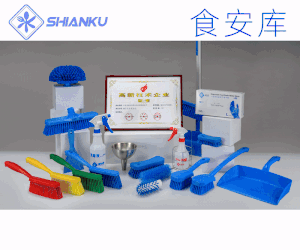食品伙伴網(wǎng)訊 2024年5月13日,歐盟食品安全局就一種含有枯草桿菌金屬蛋白酶(bacillolysin)和枯草桿菌蛋白酶(subtilisin)活性的食品酶的安全性評價發(fā)布意見。
經(jīng)過評估,專家小組認為,在預(yù)期的使用條件下,不能排除飲食暴露引起過敏反應(yīng)的風險,特別是對甜瓜過敏的人,但這種風險不會超過食用甜瓜的風險。根據(jù)所提供的數(shù)據(jù),評估小組得出結(jié)論,這種食品酶在預(yù)期使用條件下不會引起安全問題。部分原文報道如下:
The food enzyme with two declared activities, bacillolysin (EC 3.4.24.28) and subtilisin (EC 3.4.21.62), is produced with the non-genetically modified Bacillus amyloliquefaciens strain AR-383 by AB Enzymes GmbH. The food enzyme is intended to be used in nine food manufacturing processes. Since residual amounts of total organic solids (TOS) are removed in the production of distilled alcohol, dietary exposure was calculated only for the remaining eight food manufacturing processes. Exposure was estimated to be up to 1.958 mg TOS/kg body weight per day in European populations. As the production strain qualifies for the qualified presumption of safety approach to safety assessment and no issues of concern arising from the production process of the food enzyme were identified, the Panel considered that no toxicological studies other than the assessment of allergenicity were necessary. A search for the similarity of the amino acid sequence of the food enzyme to known allergens was made, and 30 matches were found, including one food allergen (melon). The Panel considered that, under the intended conditions of use, the risk of allergic reactions by dietary exposure to this food enzyme cannot be excluded, but for individuals sensitised to melon, this would not exceed the risk of consuming melon. based on the data provided, the Panel concluded that this food enzyme does not give rise to safety concerns under the intended conditions of use.
本文由食品伙伴網(wǎng)食品資訊中心編輯,有任何疑問,請聯(lián)系news@foodmate.net。
相關(guān)政策解讀











 地區(qū):
地區(qū):






 魯公網(wǎng)安備 37060202000128號
魯公網(wǎng)安備 37060202000128號



